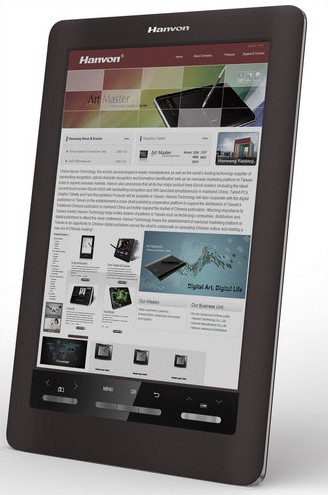
There is nothing more exciting in the field of technology than when Science Fiction turns into Science Fact. There have been many crazy ideas in the past, which people have thought will never work. However, many designers and inventors exist simply before their times and eventually the technology does come along that enables them to transform their wild theories into reality.
Science Fact
This is what I love about ePaper. This revolutionary design has actually been decades in the making. When designers first set out to move computers into the commercial world they had an idea about creating a paper-less office. Computers would be able to take on many of the tasks formerly carried out by humans and complete these in just a fraction of the time. Computers have indeed transformed the modern office and increased productivity and quality control dramatically. In fact, computers have fuelled the modern business world and provided opportunities for companies to cut costs, expand their range of operations and decrease the costs of their workforce and overheads.
However, until now computers have failed to provide a real replacement for paper. This means that despite the many advances in computers and how much they have invaded everyday life people still rely very heavily on paper and hardcopy documents.
Designing for the Future
Flexible ePaper is a very exciting product and one that has got the tech world really buzzing. It has taken nearly three decades for the first viable flexible display screens to hit the market and this really is a landmark in electronic design.
- Back in the early 1970’s the first tentative steps were taken in designing commercial office computers. At this time one of the difficult aspects of the design process was the display screen.
- Early screens used a cathode-ray tube (the best option available at the time) which did not provide the illumination or contrast needed to view screens clearly.
- Scientists were desperately working on a way to improve the display screens. Designers at Xerox came up with the idea of a ‘Gyricon rotating-ball display’.
- This was worked on the principle of ‘electrocapillarity’ action which involved triggering coloured liquids to move against a plain white background to create shapes and images.
- Although this method did prove costly (and offered poor resolution) it was a highly significant step in the progress of electronic display and paved the way for new technologies to come in the next few years.
- This included the first recorded example of a true ePaper back in the late 1990’s. The company E Ink introduced an early version of an ‘electrophoretic frontplane display’ which offered a cheaper and highly resolution design.
- Moving forward into the 21st Century several other companies have worked hard on developing ePaper.
- This includes leading plastic electronics designer Plastic Logic. This company has recently wowed sceptics with the launch of its first true colour video ePaper screen.
- This really does up the ante for designers in this field and sets the pace for future developments.
A Price in Progress
The only thing holding colourePaper back at the moment is price. This technology is still very much in its infancy and there is a long way to go yet before it can offer the cost effectiveness and functionality the general public will demand. Modern consumers are happy to invest in new technology but at the right price.
Studies have shown that the most an average consumer will pay for an electronic device is around $100. This means that in order for flexible e-Paper to become a mainstream in society manufacturers will have to create a design that can be made available for a reasonable cost. They will also have to ensure that content for the device is available at reasonable costs as well as consumers are used to good deals from existing devices such as e-Readers and smartphones.
With the thin, flexible colour ePaper screen on the markets Science Fiction has truly become Science Fact.
Neil Nelson is very inyterested in technology. When he is not writing or researching he like to run and be active.










Comments